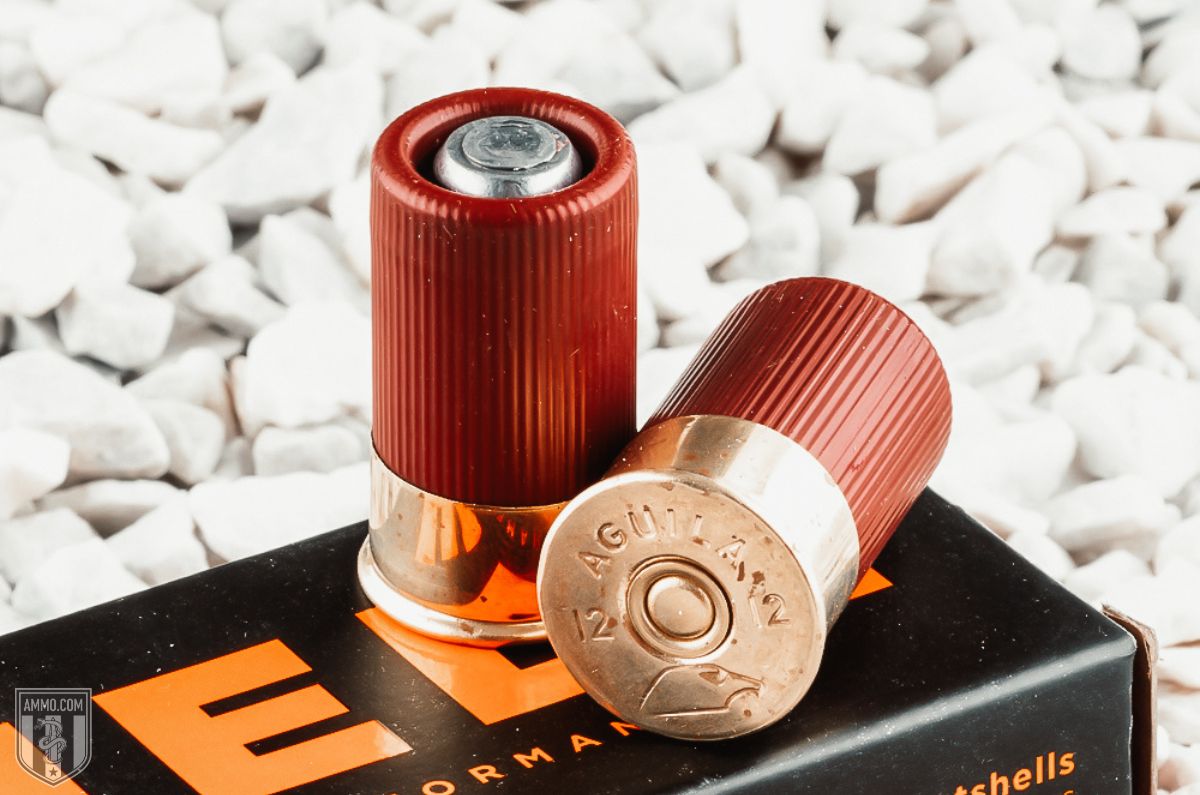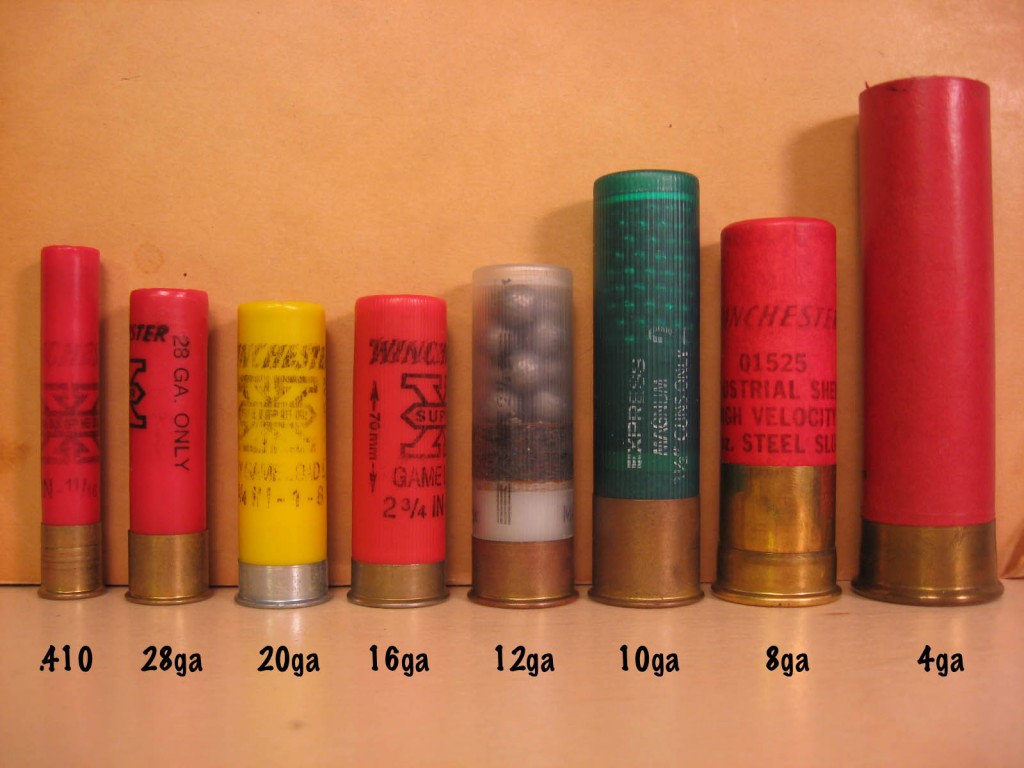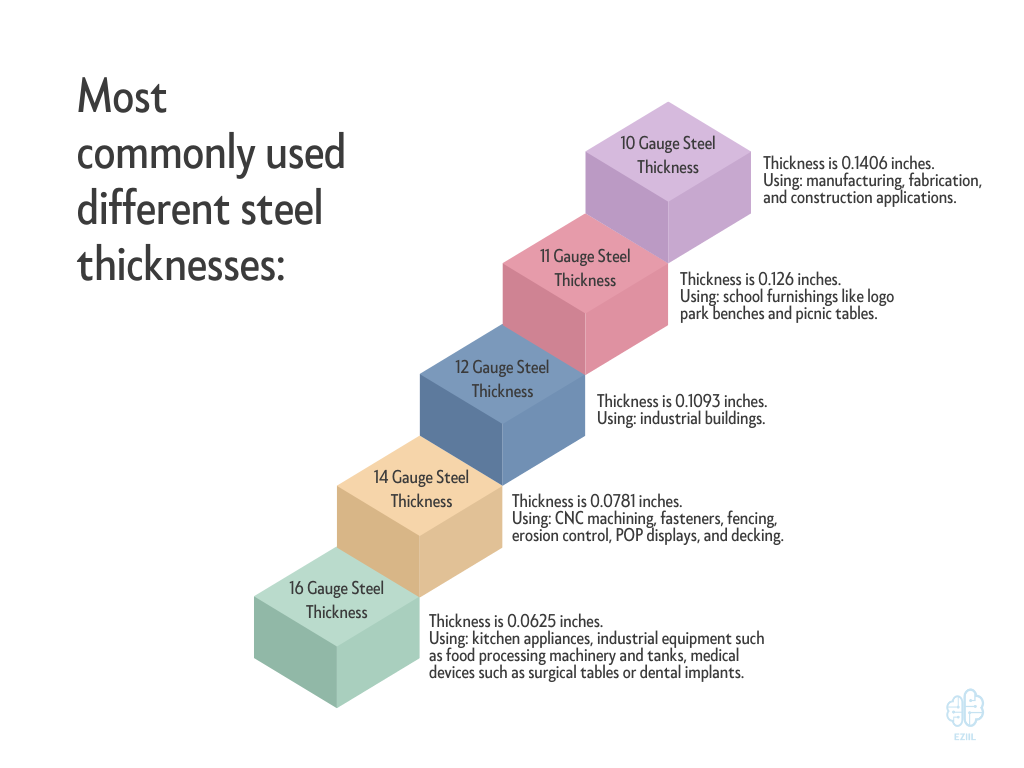Awesome Info About Which Is Stronger 12 Gauge Or 16

12 Gauge vs. 16 Gauge
1. Understanding Gauge
Okay, let's clear something up right away. When we talk about shotgun gauge, smaller number means a bigger bore. Confusing, right? Think of it like this: the gauge number tells you how many lead balls of that diameter it takes to make a pound. So, a 12 gauge needs 12 lead balls, while a 16 gauge needs 16. Therefore, 12 gauge has the bigger diameter. This is the foundation on which our discussion of power rests. Get ready to learn a thing or two!
Gauge, as a unit of measurement, has its roots in a rather archaic, yet fascinating, method of calculating the diameter of a spherical lead ball. The rule stated; the number of same-sized lead balls required to weigh one pound. A 12-gauge shotgun, therefore, had a bore that matched the diameter of a lead sphere, twelve of which would weigh exactly one pound. Similarly, a 16-gauge needed sixteen lead balls to make a pound.
While this method might seem a bit odd in the age of micrometers and digital calipers, it remains the standard for defining shotgun bore sizes. So, next time you are at the range, remember that it's not just about shooting; it's also a nod to a quirky piece of historical measurement.
But that is enough about history! Let's delve into the meat of the matter: which of these gauges is packing more punch? The answer, as with most things in life, isn't quite as straightforward as you might imagine. So, fasten your seatbelts as we explore the factors that contribute to the perceived power of each gauge. Don't worry it won't be too complicated, just enough to keep you from zoning out.

Power Play
2. Payload and Velocity
The general consensus — and it's usually a pretty accurate one — is that the 12 gauge packs a significantly larger punch. This is mainly due to its ability to handle a heavier payload (more shot pellets or a larger slug) and, often, achieve higher velocities. Imagine throwing a baseball versus a softball; the softball has more mass, and if you throw them at similar speeds, the softball will deliver more energy on impact.
Think about it this way: the 12 gauge is like that burly friend who can carry all the groceries in one trip. It has a larger hull, allowing it to accommodate more shot. More shot means more lead heading downrange. And, while velocity plays a crucial role, the sheer volume of projectiles in a 12-gauge shell usually translates to more stopping power. Is that a good thing, for hunting? Well, that's up for debate, but let's stick to the physics of it all.
Velocity matters too! A faster-moving projectile delivers more energy upon impact. Now, manufacturers can load both 12 and 16 gauge shells to different velocities. However, all other factors being equal, the 12 gauge shell, thanks to its larger capacity, has the potential to reach higher velocities with heavier loads. This results in a flatter trajectory and increased range, making it a more versatile option for various shooting applications.
Don't think the 16 gauge doesn't have its charm, though. It's often lauded for its balance of power and recoil. It offers a substantial step up from the 20 gauge while remaining more manageable than the beastly 12 gauge, making it a comfortable option for those who prefer a lighter-kicking shotgun. Comfort is important for accurate follow-up shots, as you want to quickly reacquire your target after each shot.

Buy 12 Gauge Shotgun Shells Online
Recoil Rumble
3. Controlling the Kick
Here's where the 16 gauge starts to shine. Because it generally has less payload, it also produces less recoil. This can be a big deal for shooters who are sensitive to recoil, especially during a long day at the range or in the field. Less recoil means you can shoot more comfortably and accurately.
Recoil is subjective. What one person finds tolerable, another might find brutal. A smaller framed individual will likely notice the larger recoil of a 12 gauge more than a larger individual would. Weight distribution of the firearm is also key factor to felt recoil. A heavier firearm will generally mitigate recoil. A good example is when people add weight to the butt of their AR-15 pistol to make them easier to handle.
Think of recoil as the price you pay for power. The 12 gauge delivers a harder hit downrange, but it also delivers a harder kick back into your shoulder. The 16 gauge offers a happy medium: enough power for most hunting situations, but with a recoil that won't leave you bruised and battered. And, let's be honest, a comfortable shooter is a confident shooter, and a confident shooter is an accurate shooter. It is like trying to write neatly when your hands are shaking after a workout.
Ultimately, the choice between the 12 gauge and the 16 gauge often comes down to personal preference and the intended use. If you are primarily hunting larger game or shooting competitively, the 12 gauge might be the better choice. But, if you're looking for a lighter, more manageable shotgun for upland bird hunting or casual clay shooting, the 16 gauge could be just the ticket. Try both out, if possible!

Metal Strength Chart A Detailed Guide To Strengths
Practical Applications
4. From Birds to Big Game
Let's get down to brass tacks. What are you actually planning to do with your shotgun? Hunting waterfowl? The 12 gauge is king due to its ability to deliver a large shot cloud at longer ranges. Chasing upland birds? The 16 gauge offers a lighter, faster-handling option that's less fatiguing to carry all day. Home defense? The 12 gauge, with its intimidating sound and devastating potential, is a popular choice (though a 20 gauge is also perfectly viable).
For hunting bigger game like deer, both gauges can be effective depending on the distance and the specific regulations in your area. The 12 gauge, however, generally offers a wider range of slug options and the potential for longer-range shots. But remember, ethical hunting practices are paramount, and shot placement is always more important than raw power. The most powerful firearm in the world is not helpful if you miss!
Consider your hunting style, too. If you are the kind of hunter who likes to walk long distances and take quick shots, the lighter weight of a 16 gauge can be a real advantage. If you tend to hunt from a stand or blind, where weight is less of a concern, the extra power of the 12 gauge might be preferable. The goal is to find the tool that best fits your needs and allows you to be an effective and responsible hunter.
And don't forget about ammunition availability. While both 12 and 16 gauge ammunition are readily available, the 12 gauge has a much wider selection of loads, from birdshot to buckshot to slugs. This versatility can be a significant advantage, especially if you plan to use your shotgun for a variety of purposes. However, ammo prices can sometimes fluctuate, so keep an eye on sales and stock up when you find a good deal! Don't be afraid to look at estate sales!

16 Gauge Stainless Steel Thickness
Beyond Power
5. Fit, Feel, and Personal Preference
Ultimately, the "stronger" gauge is the one that you can shoot most effectively. A shotgun that fits you well, feels comfortable in your hands, and allows you to consistently hit your target is far more valuable than a shotgun that simply packs more power. This is why many seasoned shooters recommend trying out different gauges and models before making a purchase.
A shotgun that's too long or too short can be difficult to swing smoothly and accurately. A stock that doesn't fit your shoulder properly can lead to increased recoil and discomfort. The best way to find a shotgun that fits you well is to try it out at a gun range or ask a knowledgeable gunsmith for advice. Many ranges offer rentals, which can be a great way to experiment with different gauges and models without committing to a purchase.
Don't underestimate the importance of personal preference. Some people simply prefer the feel and balance of a particular gauge or model. Maybe you like the classic look of a vintage 16 gauge, or maybe you prefer the modern features of a new 12 gauge. Whatever your preferences, don't be afraid to choose the shotgun that you enjoy shooting the most. After all, shooting should be a fun and rewarding experience!
Consider cost. As we mentioned, ammunition is readily available, but it does cost money! Over time, the expense will add up, and should be considered when making the proper decision for you. Also, do not forget maintenance! Cleaning supplies will need to be considered, but ultimately you should clean your firearm properly to ensure years of safety and use.

FAQ
6. Quick Answers to Common Inquiries
Q: Is a 12 gauge always more powerful than a 16 gauge?
A: Generally, yes. Due to its larger bore, the 12 gauge can handle heavier payloads and often achieve higher velocities, resulting in more power. But specific loads and the gun's design can affect the outcome.Q: Is the 16 gauge obsolete?
A: Not at all! While less popular than the 12 or 20 gauge, the 16 gauge still has a dedicated following and is appreciated for its balance of power and recoil. It's a fantastic choice for upland bird hunting and other applications where a lighter, more manageable shotgun is desired.Q: Which gauge is better for home defense?
A: Both can be effective. The 12 gauge is a popular choice due to its intimidating sound and stopping power. However, the 20 gauge is also a viable option, offering less recoil for easier handling, especially for smaller individuals.Q: Can a 16 gauge kill a deer?
A: Yes, if loaded with the proper ammunition (usually a slug) and used within appropriate distances. Be sure to check your local hunting regulations.